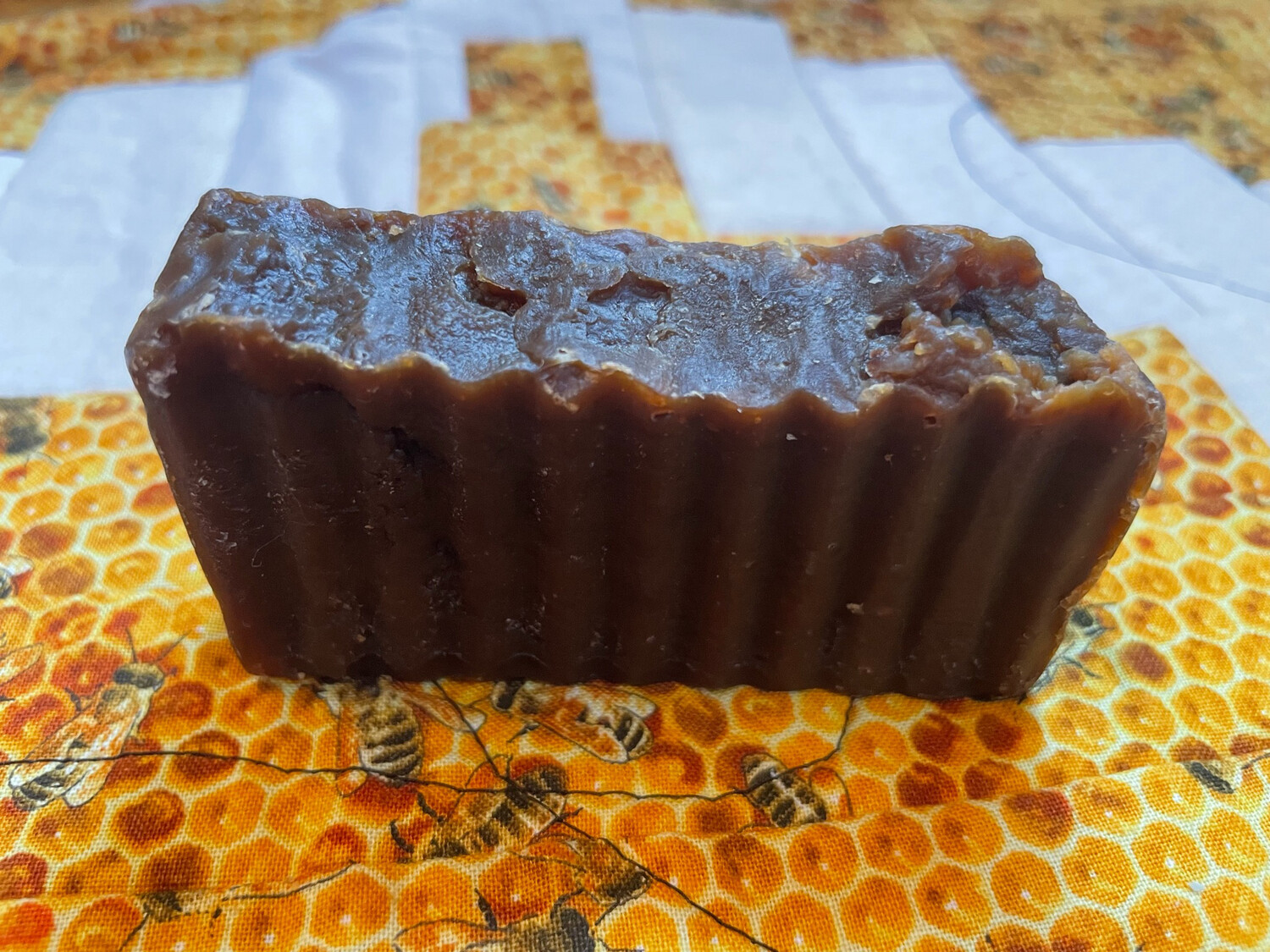
Soap: What In Tarnation
This is my husband's favourite soap. He loves it because it is a hard bar, lasts a long time and has the opposite of a "flowery smell". I chose to create this soap because pine tar is reported to have good properties for your skin. Below, you will find a report from: © 2016 The Authors. Australasian Journal of Dermatology © 2016 The Australasian College of Dermatologists.
Pine tar is the end product of pine wood carbonisation following distillation using extreme heat. An extensive literature search was conducted back to the 1950s for this review. Pine tar has been used in medicine for more than 2000 years to treat a range of skin conditions because of its soothing and antiseptic properties. Pine tar is thought to exert its effect by reducing DNA synthesis and mitotic activity, which promotes a return to normal keratinisation. In addition, pine tar has been shown to be antipruritic, anti-inflammatory, antibacterial and antifungal. These properties make pine tar suitable for the topical treatment of eczema, psoriasis, seborrhoeic dermatitis and other dry, itchy, flaky or inflamed skin conditions. Topical products available over-the-counter in Australia today contain up to 2.3% pine tar, and come in several different formulations that can be used on the entire body, including the face. Modern day pine tar is manufactured with increased purity to eliminate toxic phenol and carcinogenic components, which have been of concern in the past. Primary irritation is uncommon. In conclusion, the long experience with topical pine tar therapy and its worldwide usage, together with the evidence presented in this review, suggests that pine tar is an effective treatment with minimal safety risk.
Why Choose Us?
We are a local Saskatchewan honey producer working hard to bring you carefully handcrafted honey products. Questions about our product? Get in touch! We are happy to chat.
